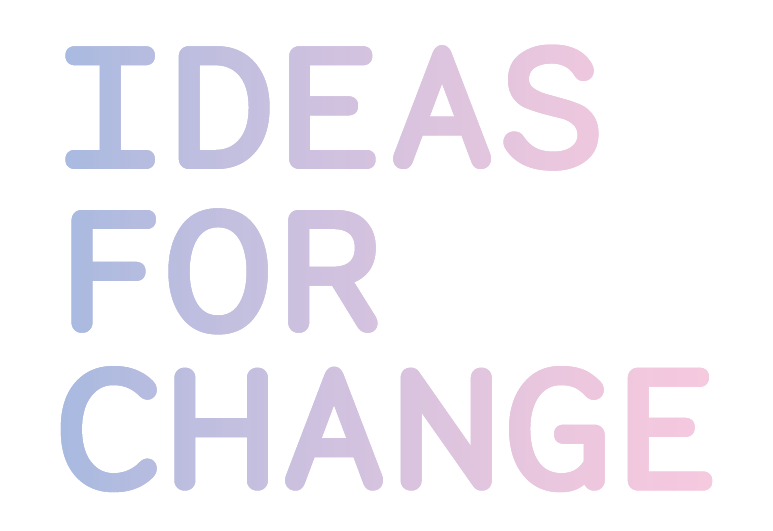DLT4EU: an acceleration programme with a vocation for experimentation
By Anna Higueras, responsible for DLT4EU at Ideas for Change. (Originally published in Spanish)
We have come halfway through the DLT4EU Programme, a project funded by the European Commission that promotes the adoption of DLT (Digital Ledger Technology) solutions to solve challenges faced by the public sector in the social and environmental field and that we promote, in collaboration, Ideas for Change, Metabolic and Digital Catapult.
It is a bet with a vocation for experimentation: how do DLT-type technologies respond (blockchain is the most popular, but not the only one) when we enter into the development of solutions for the public good? Do they provide valid and robust solutions? Are they a good option for it?
Nothing has changed without experimenting, it is what we call anticipatory innovation”
Piret Tonurist during her presentation at the DLT4EU Public Launch Event in collaboration with MWC
As Piret Tõnurist (OECD Innovation Leader) advanced in the presentation debate of the DLT4EU Programme that took place on September 17th, anticipatory innovation processes are crucial in the development and adoption of new technologies. DLTs are currently an open field for research with enormous potential for advancement. The advantages of its use in the financial sphere are widely demonstrated with more than 60% of global financial institutions using blockchain applications in 2020. But despite the fact that blockchain is a promising solution for a more decentralised society, with sovereign users of their data leading a beneficial social agenda, there is still a long way to go to normalise DLT applications for the greater good.
Faced with the main question: why DLTs or blockchain?, the answer is consolidated: blockchain complies with what Dr. Claudio Lima, co-founder of the Blockchain Engineering Council, defined as the 3Ts: “Trust, Traceability and Transparency”. In other words, it allows decentralised, transparent and validated data storage. These three characteristics are crucial for the areas in which DLT4EU is focused: circular economy and digital citizenship, two segments of global impact for the European agenda and the new Green Deal.
A pilot accelerator
The DLT4EU project, launched last January of this year, is a cutting-edge acceleration programme (and fully virtual due to the context of Covid-19) that has put eight software development companies to work with public sector organisations to solve concrete and real challenges, all of them related to urgent problems for society that these organisations face in their day to day. DLT4EU helps accelerate the development of practical solutions to challenges by making available to participating companies a programme specifically designed to test the behaviour of DLT technologies and understand their potential in the social and environmental spheres.
The acceleration programme began in June and is providing valuable details both for the project managers (directly reporting to the European Commission) and for the teams involved, in many cases companies in the technological field that are making a commitment to open up to new areas of operation related to Public Good.
Solutions to urgent circular economy and digital citizenship challenges
The eight challenges in the acceleration phase are framed in the field of circular economy and digital citizenship, two fields in which DLT applications can lead to solutions with great potential for development.
Circular economy is a model that refocuses the use of resources and needs (human, productive) towards strategies of cyclical use, which extend the useful life of resources, minimise the generation of waste and allow a fairer social redistribution, of low ecological ‘bill’.
The challenges of DLT4EU in acceleration under this umbrella are related to the reconditioning of disused electronic materials, the possibilities of integrating sustainable transport methods in the city or the reuse and exhaustive recycling of textiles.
This is the case, for example, of the Spanish association Ereuse, which is developing a circular consumption system for electronic equipment for the Sant Boi City Council, extending its useful life cycle and promoting the reuse of this equipment by vulnerable families in the city.
Digital citizenship can be broadly defined as the application of digital technologies to facilitate and better involve citizens in public decision-making, service improvement, and social impact initiatives. This can be developed at the local/municipal or national level. The challenges of DLT4EU in the acceleration phase are focused on the areas of digital inclusion, monitoring and responsibility in granting aid, the management of personal data in accordance with the models of citizen sovereignty and investment models using community currencies.
This is the case of the British platform Alice.si, which is systematising the visualisation of charitable aid data with the Vodafone Foundation, simplifying the reporting, verification and accountability processes, and creating an SSI identification system (self-sovereign identity) for the beneficiaries of its humanitarian development programmes.
DLTs for the common good
The solutions under development within the DLT4EU programme are just a sample of the wide spectrum of possibilities presented by the potential of using DLT technologies for social and environmental purposes: areas such as traceability in the supply or recycling chains, property transfers in secondary markets or management in the use of public infrastructure. And under the umbrella of digital citizenship: transfers of personal data (for example health), or identification, inclusion and community participation systems.
The nature of these technologies, which makes it possible to identify (in an anonymised way) and trace an itinerary (in an authenticated and transparent way) of the data that is generated throughout the process, makes it possible to establish successful patterns and gain an in-depth understanding of which solutions create greater impact.
It is, therefore, an exciting time to test blockchain, whether the objective is to reshape the management of citizen data, or if the interest is to move towards new forms of trust in processes for the common good.
The results of the DLT4EU acceleration programme will be presented in February at an open event at the European Commission.
Keep reading:
Did you like this article?
Receive more content like this in your inbox!













